
The Business of Fashion
Agenda-setting intelligence, analysis and advice for the global fashion community.

Agenda-setting intelligence, analysis and advice for the global fashion community.
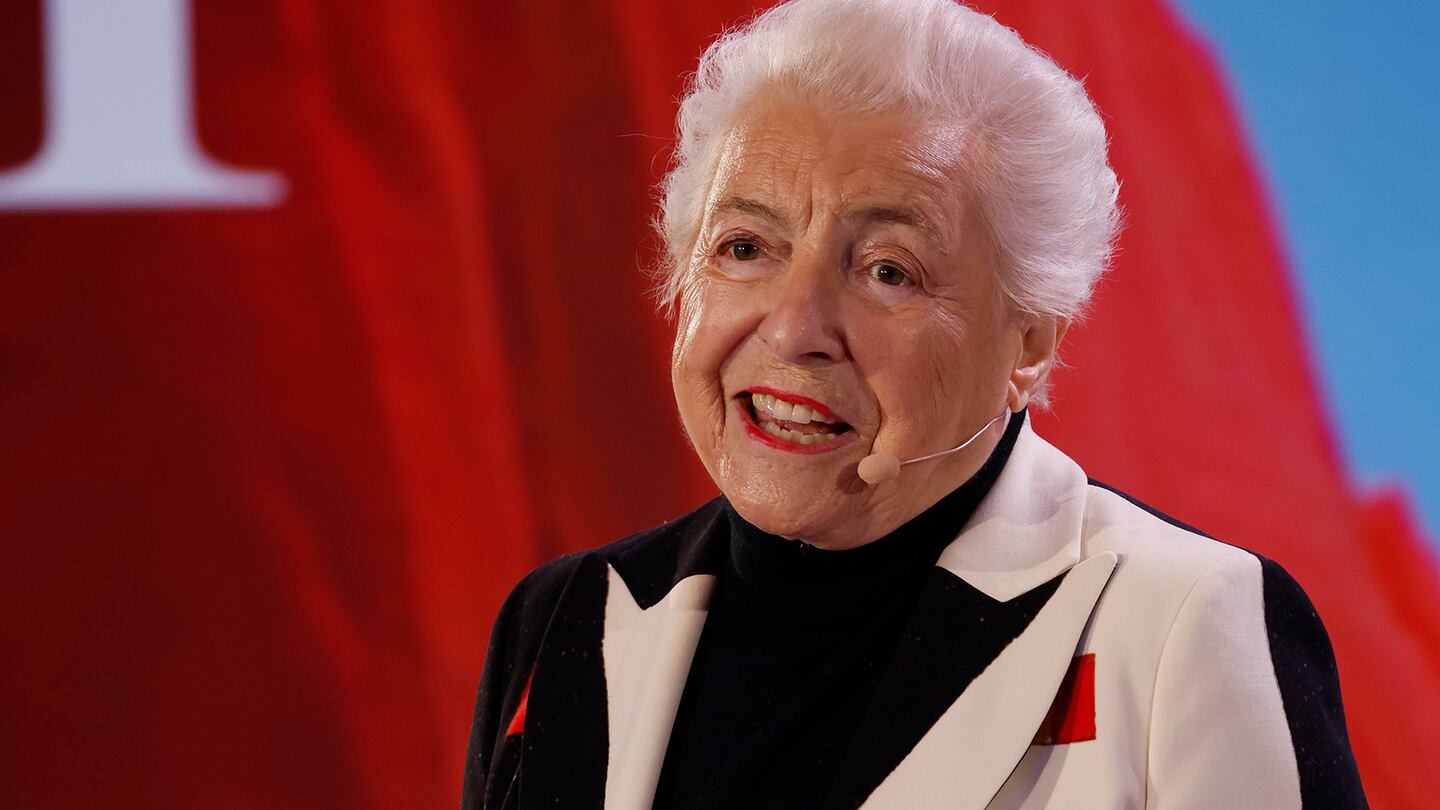
Technology has unleashed problems from a misinformation epidemic to the information overload that strains our mental and physical wellbeing. But it also holds incredible power to reshape the world for the better. In the third session of BoF VOICES, speakers examined the ways technology can allow us to overcome challenges that range from the personal to global.
Enabling Our Best Selves
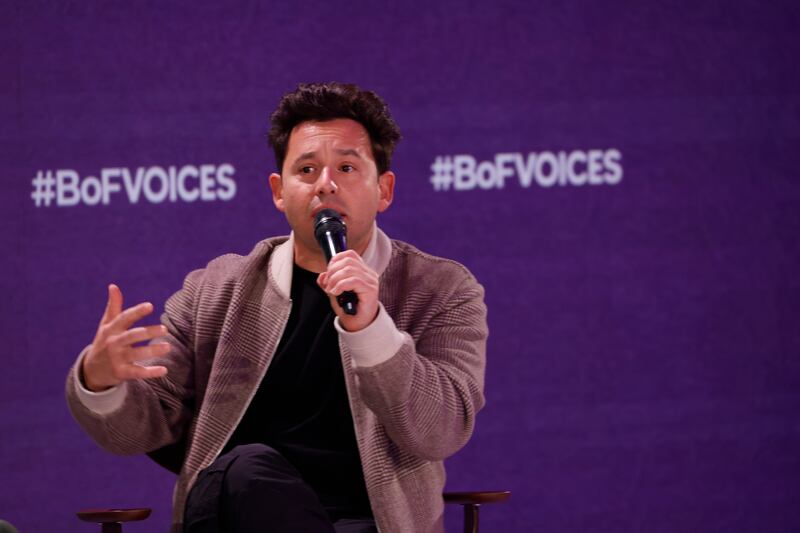
In 1962, Dame Stephanie Shirley founded a pioneering technology company called Freelance Programmers. It was for women and by women — a response to the rampant sexism Shirley had encountered working as a young woman at London’s Post Office Research Station, where some of the earliest computers were developed. The company’s achievements included writing the software for the Concorde’s blackbox flight recorder, a feat she pointed out was accomplished by a team of 30 women mostly working from their kitchen tables. When she stepped back in 2000, the company had become a $3 billion empire that made Shirley and several of her colleagues rich.
“You can always tell ambitious women from the shape of our heads,” she told the audience at VOICES. “They’re flat on top, and that comes from being patted patronisingly.”
ADVERTISEMENT
Harley Finkelstein, president of e-commerce platform Shopify, highlighted technology’s ability to enable entrepreneurs, noting that it’s easier than ever for people to launch businesses and turn what in the past might have remained no more than a hobby or passion project into a livelihood.
“We’ve never seen business scale like this ever before, and the technology makes it possible, but the entrepreneur is driving it,” he said.
Rethinking the User Interface
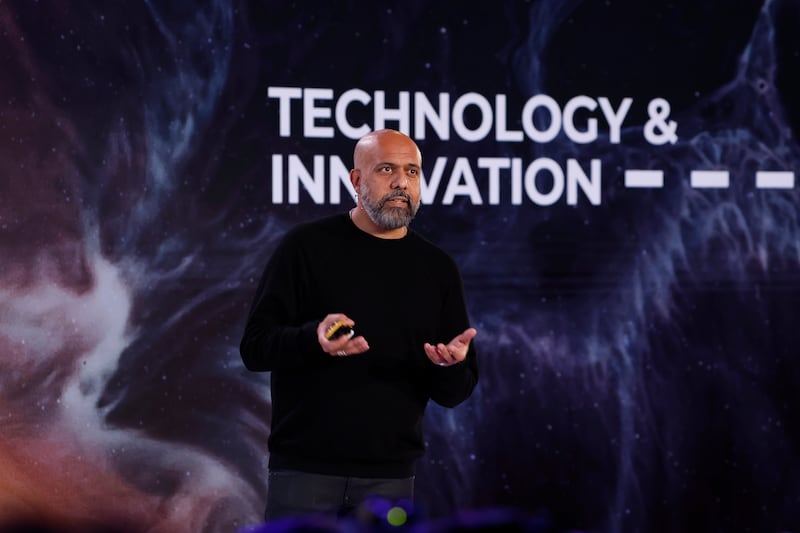
Technology wasn’t praised indiscriminately, however. Speakers warned of the dangers of misinformation and the control tech giants hold on our lives.
Imran Chaudhri, a former Apple designer credited with creating the original iPhone interface, said our devices are forcing us to contort our lives and our physical bodies around them, when it should be the other way around. The solution, in his view, won’t be the headsets or glasses in development by companies like Meta and Apple. They just bring the screen that much closer to the face and block our eyes, an important site of connection.
“We believe that the best user interaface is no user interface,” Chaudhri said.
For four years, Humane, the company Chaudhri co-founded with his wife, has been working on a new type of device that will rely on ambient computing and AI to offer a screenless future where people can focus on the world in front of them. Chaudhri offered examples like spotting sneakers or a dress on someone walking by and being able to immediately get details on what brand they are and where to buy them, or being at a wedding and being able to capture the moment — all without the interruption of taking out a phone.
Precise details remain scarce, but at VOICES Wednesday, Chaudhri revealed that Humane will announce its first products in the spring of 2023.
ADVERTISEMENT
Working for the Collective Good
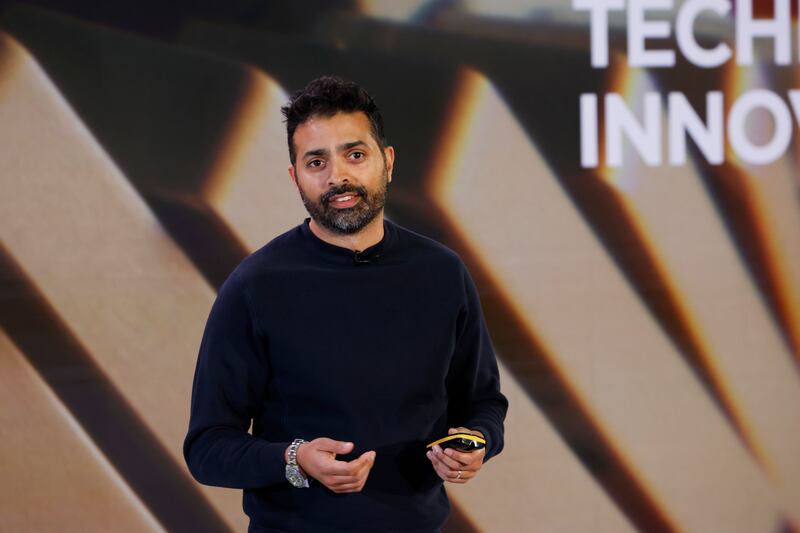
At the outset of the pandemic, when Asian-Americans were being scapegoated as Covid’s cause and assaulted in the US, designer Phillip Lim knew he needed to act but wasn’t sure how. After he began to speak out publicly, he received a call from Musa Tariq, a friend who had worked for brands such as Burberry, Nike, Apple and Ford before becoming chief marketing officer of the crowdfunding platform GoFundMe. They ultimately created Stop Asian Hate, which became a digital hub for people to donate, fundraise and share their experiences.
Kindness is contagious, Tariq said, and when people see others contributing they’re more likely to do so themselves. Technology has made it easy, though as Tariq noted, “actually it’s the people that use the technology that make it come to life.”
Several speakers at VOICES offered similar examples of technology providing help to people in need. New Story, an organisation focused on ending homelessness founded by Brett Hagler and Alexandria Lafci, has used 3D printing and a proprietary cement mix to create affordable, well-designed homes. Sneha Sheth’s Dost Education, meanwhile, sends a one-minute podcast daily to low-income parents in India who may have limited education themselves to provide instruction on how they can break the cycle of illiteracy with their children.
Reimagining the Supply Chain
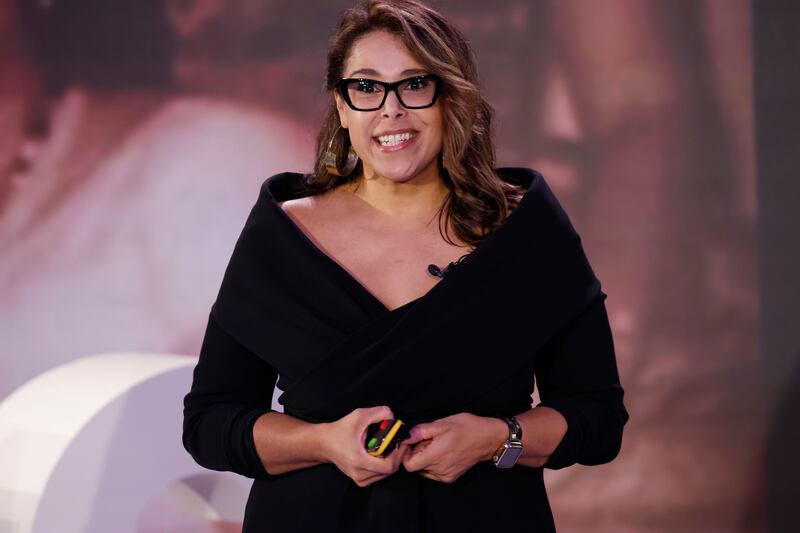
The past few years have seen constant disruptions to the supply chains that power the global economy and revealed their ultimate fragility. That’s because they’re like spiders, said Lisa Morales-Hellebo, founder and co-managing general partner of Refashiond Ventures, in a nod to the book “The Starfish and the Spider.” They’re centralized, so cut the head off and the organism dies. A better system would mimic a starfish: cut off a leg and it will grow back into a full starfish.
Morales-Hellebo’s ideal is a distributed network of clone factories, where if one goes down production could be digitally queued up at the next closest supplier. This sort of arrangement, she added, could also transform the supply chain — where a brand produces, ships and then sells products — into a demand chain, where the brand sells the item first and then produces on demand. The result would be major benefits to profitability and a reduced environmental impact.
Sriram Krishnasamy, the chief executive of FedEx Dataworks, which provides data-centred logistics solutions, offered his own view of the future supply chain. If brands were to join forces, they could create a collaborative data ecosystem that would use AI to optimise their supply chains for the benefit of all.
ADVERTISEMENT
Whether or not brands ultimately buy into these ideas, Morales-Hellebo had a warning for brands: “Disruption will happen with or without you,” she said.
BoF VOICES 2022 is made possible in part through our partners McKinsey & Company, Shopify, Flannels, Brandlive, Lenzing, ShopRunner, Snap, Canada Goose, Invisible Collection, Soho House, and Getty Images.
 Opens in new window
Opens in new windowFrom analysis of the global fashion and beauty industries to career and personal advice, BoF’s founder and CEO, Imran Amed, will be answering your questions on Sunday, February 18, 2024 during London Fashion Week.
The State of Fashion 2024 breaks down the 10 themes that will define the industry in the year ahead.
Imran Amed reviews the most important fashion stories of the year and shares his predictions on what this means for the industry in 2024.
After three days of inspiring talks, guests closed out BoF’s gathering for big thinkers with a black tie gala followed by an intimate performance from Rita Ora — guest starring Billy Porter.